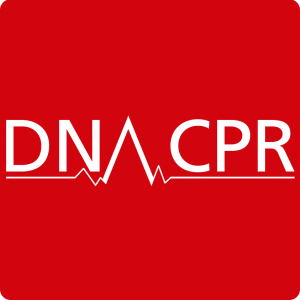Cardiopulmonary resuscitation (CPR) is a potentially life-saving procedure when delivered by appropriately trained personnel. However, it must be taken into consideration that, in some circumstances, such an intervention may be perceived as inappropriate, futile or unlawful. Injudicious use of CPR may cause unnecessary trauma, leading to an undignified death, or to the prolongation of pain and suffering of patients. It is therefore important to identify those patients in whom CPR would be inappropriate and where attempts to prolong life are merely actions that would prolong the process of dying.
A DNACPR order is not the same as a decision to stop CPR that has proven unsuccessful. Stopping CPR is an entirely clinical decision and must be made by the most senior doctor in attendance, with the agreement of the team assembled.
If you would like to book onto a face to face course please contact Samantha Salisbury on 01253 957778 or email bfwh.resuscitation@nhs.net
Easy Read DNACPR Information Leaflet – this easy ready guide for learning disabilities can be printed off and given to patients and relatives. The comprehensive information leaflet for ALL patients is available from the resuscitation department central store and can be sent to wards in packs of 10. Please contact the resuscitation department should you require these.
For our workforce to have access in as many ways as possible to this information, our resuscitation department have developed a PODCAST for those who have difficulty accessing the face to face sessions, due to clinical commitments or just prefer an alternative way of accessing the presentation, so that you have an awareness of the producers surrounding DNACPR.
Please note this Podcast will be delivered to ALL CLINICAL staff who access the RC (UK) Immediate Life Support (ILS) course as part of your targeted training element surrounding resuscitation statuses
Classroom Training Dates
Please contact Simulation and Skills on 01253 955668
This course is beneficial to ALL staff who are involved in frontline patient care.
Further Information
- Candidate Responsibilities when attending courses
- Terms and Conditions
- Resuscitation Council (UK) Website
- Advanced Life Support Group Website


